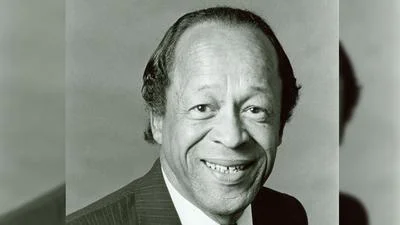Chicago Police Department
Chicago Police Department
A class action lawsuit against the city of Chicago over its use of a technology, ShotSpotter, that detects the sounds of gun shots and immediately notifies police, is at odds with law enforcement’s, and the community’s, endorsement of it.
The lawsuit filed last year by the Washington D.C. – based MacArthur Justice Center, with an amicus filed by three Chicago-based activist groups, including Lucy Parsons Labs, charge that the technology is both ineffective, and unfairly targets Black and Hispanic communities.
“More than 90% of all ShotSpotter alerts turn up nothing,” a statement from MacArthur said when the lawsuit was announced. “Despite knowing the system is overwhelmingly and dangerously untrustworthy, the City of Chicago deliberately relies on a technology that provides no proven public safety benefit and, instead, enables discriminatory policing…”
The statement added that the technology is used only on Chicago’s South and West Sides.
Adam Scott Wandt, a law enforcement technology expert with the John Jay College of Criminal Justice, told Chicago City Wire that ShotSpotter (now used in over 140 cities around the country) is a valuable tool but like any technology has its limits.
“It’s a law enforcement technology that shouldn’t in and of itself be used as evidence,” Wandt said. “But it’s a very good tool for alerting police and other first responders so they can get to a scene more quickly, and possibly stopping the spread of additional violence.”
Research by the Journal of Trauma and Acute Care Surgery likewise reported that ShotSpotter alerts decrease police and EMS response times, getting first responders to the scene to identify and assist gunshot victims who may otherwise not receive life-saving help.
In Chicago, the CPD did not return a comment in time for this story, but an ABC Chicago story published last year quoted Commander Don Jerome as saying that at first he was skeptical of the technology, but that he has “seen success stories almost every day, so I'm convinced.”
In the same story, Alderman Ray Lopez (15th Ward) said that he has seen the benefit (of the technology).
“How positive an impact it has on catching criminals, tampering down the violence that plagues our communities," Lopez said.
City residents, moreover, overwhelmingly support ShotSpotter, according to a May 2022 poll by Fallon Research and the National Policing Institute.
In its lawsuit, MacArthur points to its own research and that of a 2021 study by Office of Inspector General showing that fewer than one in ten ShotSpotter alerts between 2020 and 2021 were linked to gun-related criminal offenses.
For a WTTW report, ShotSpotter CEO Ralph Clark said the MacArthur and OIG studies don’t address the technical efficacy of ShotSpotter. They are posing a question around operational value, he said.
“Although 10% might sound small, you have to look at the nominal number of what’s in that 10%,” Clark said. “We know from looking at the same data that the OIG report produced, ShotSpotter led to 1,100 gunshot-wound victims coded by the data that OIG looked at. Eight hundred of those 1,100 gunshot-wound victims did not have a corresponding 911 call. It means that ShotSpotter was the means by which first responders got to those folks that were potentially bleeding out and potentially saving a percent of those lives.”
The ShotSpotter company website addresses what it calls other “false claims” about the technology, including that ShotSpotter alters evidence at the request of the police and prosecutors.
“This has no basis in fact,” ShotSpotter said. “By March 2022 numerous media outlets, including the Associated Press, have corrected, retracted, or clarified this false claim that was originally published by VICE media.”
MacArthur did not return a request to comment on how it determined that ShotSpotter is used only on the South and West Sides – a ShotSpotter spokesman noted that only the police departments know where detection sensors are located.
Last year, the Chicago Sun-Times reported that 2021 was the deadliest year in the city since the mid-1990s. The homicide rates on the South and West Sides by far surpassed the rate in other sections of the city.
The McArthur class action suit was filed in U.S. District Court for the Northern District of Illinois.






 Alerts Sign-up
Alerts Sign-up